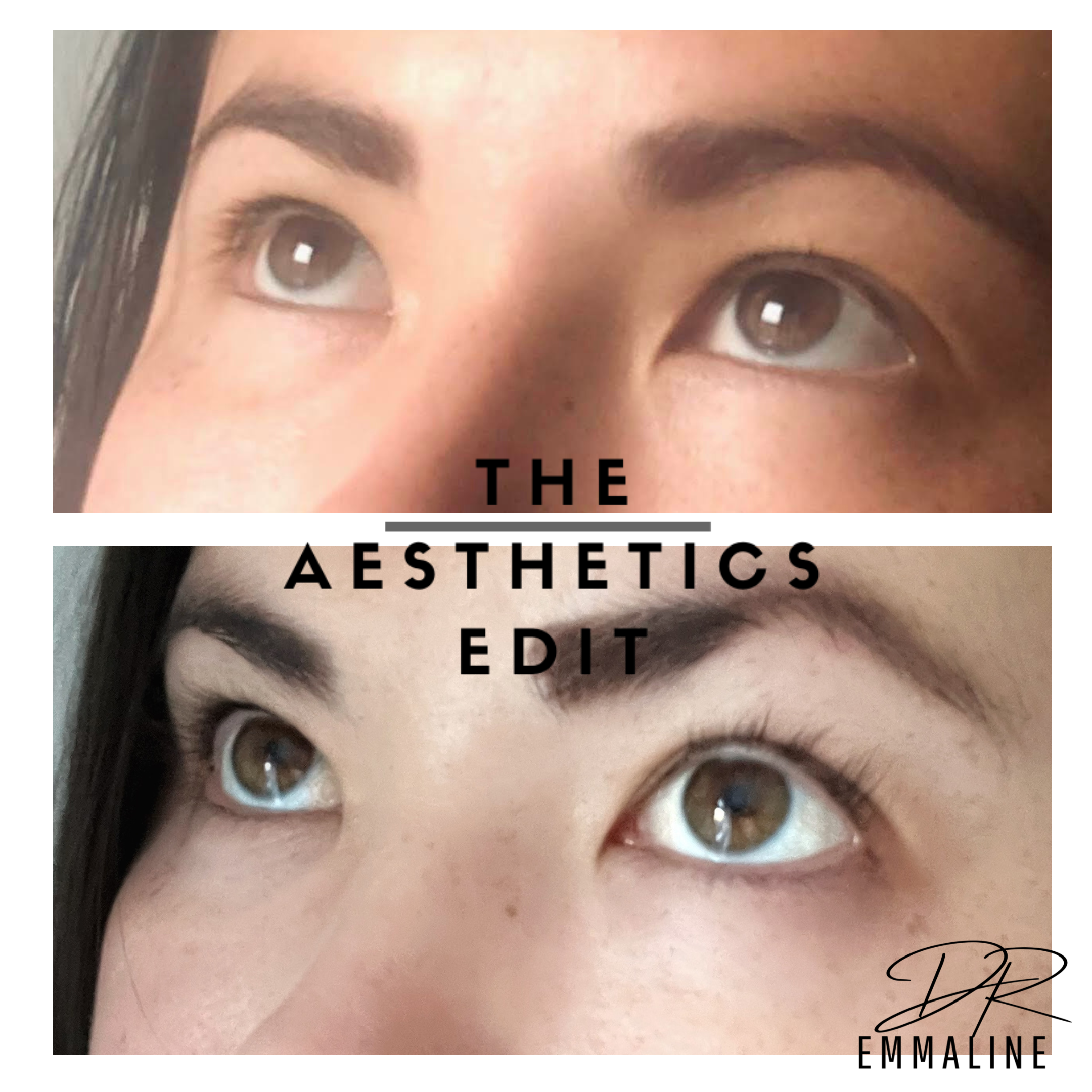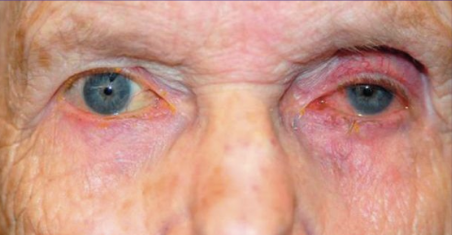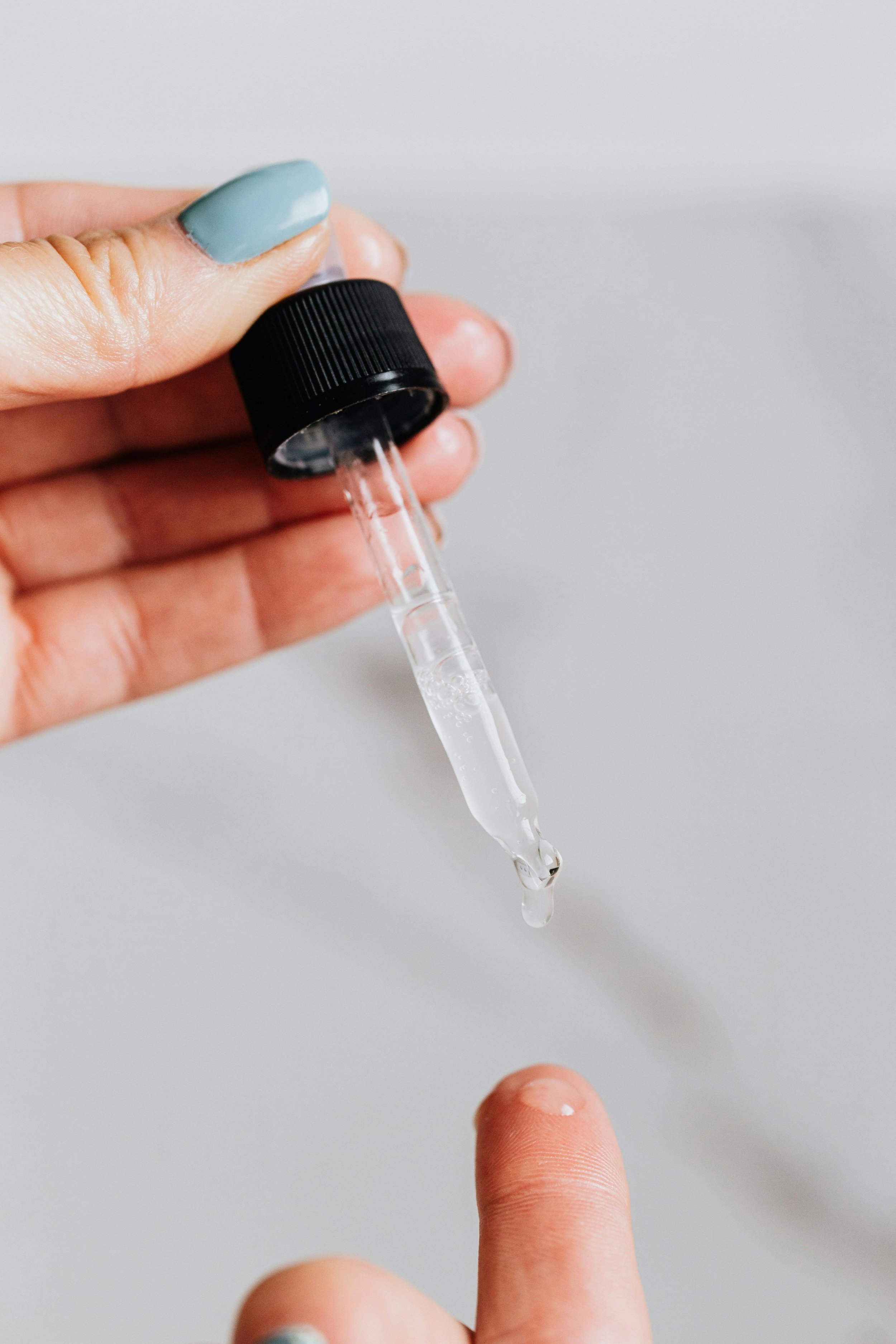Long, Long Lashes: Do Eyelash Serums Really Work?
Raise your hands if you were born cursed with short, stubby lashes?
That is definitely me.
I also approached eyelash serums with a healthy dose of skepticism - and to be honest, that skepticism is well-deserved in most cases.
However, there are genuinely eyelash growth serums that do work. They are prescription medications containing prostaglandins, and should only be available to you after a medical consultation with a prescribing doctor. But there is some controversy about the safety of such serums in the long-term.
So let’s delve into the science behind them.
What is a Prostoglandin?
Prescription eyelash serums contain structural analogues of a hormone-like lipid called prostaglandin. Prostaglandins are lipids (fats) that have physiological effects on tissues. Commonly used analogues include bimatoprost, used in Latisse (USA)/Lumigen (UK). Of note, Latisse was the first FDA-approved serum for lash growth. Other analogs are isopropyl cloprostenate (GrandelashMD), and dehydrolatanoprost (Obagi Nu-Cil).
Although we do not completely understand the underlying mechanism of action of this medication (which was originally used for glaucoma), it is thought that it increases the anagen - or growth- phase of hair. This increased number of eyelash follicles in the growth phase is likely what allows the treatment to lengthened lashes. It is also posited that prostaglandin analogues stimulate melanogenesis (the formation of pigment) leading to darkening of the lashes, as well as increasing the size of the hair bulb, making lashes thicker.
What is the Evidence?
Serums that contain prostaglandin analogues are supposed to increase the length, thickness, and darkness of eyelashes in approximately 2 to 4 months. The first study conducted specifically on bimatoprost was a multicentre, double-blinded, randomised, parallel study of 278 patients was conducted over a period of 4 months. A recent systematic review summarises the current results from studies of this medication.
How Is It Used?
The serum should only be used as directed by a medical professional. The serum should be used once every night along the skin of the upper eyelid at the base of the lashes. It should not be applied anywhere else, including the lower lash line. Most patients should not expect to see any results until the two month mark.
The results are not permanent. Once you stop the using the serum, your lashes will eventually return to their normal length and thickness.
What Side Effects Should You be Aware Of?
There are some known side effects that are often discussed when prescribing this product, which includes eye redness, itchiness, and irritation. This is why it is important to use a sterile applicator and only apply the serum to clean skin. Chronic eye dryness has also been reported. Rare side effects include darkening of the eyelid skin or the iris if excess medication is consistently absorbed into the skin of the eyelid and surface of the eye. This pigmentation change is permanent.
Prostaglandin-Associated Periorbitopathy: The Elephant in the Room
In the early 2010s, ophthalmologists began describing a phenomenon known as Prostaglandin-Associated Perioribtopathy (PAP) seen in their glaucoma patients treated with prostaglandins. Patients who used these eye-drops long term were exhibiting very characteristic changes around their eyes. This includes upper lid ptosis (droop), deepening of the upper lid sulcus, periorbital fat atrophy, and increased prominence of the lid vessels.
Patient treated with prostaglandin analogue for glaucoma in the left eye only. You can note clear characteristic changes associated with PAP in the left compared to the right.
In fact, it was so widespread that doctors reported that when they looked for these changes, they saw them in their patients 100% of the time. It is now widely acknowledged to be a common side effect of using prostaglandin analogue topical therapy.
Of note, discontinuing use of prostaglandins did show reversal of a lot of the characteristics of PAP.
So does this mean that eyelash serums containing prostaglandins will have the same effect?
This image went viral after a patient shared her experience with lash serum.
Eyelash serum Latisse/Lumigen have included this as a known side effect in their medication information leaflet, and there have been many self-reported cases from patients.
A study published this year the Aesthetic Surgery Journal also explored this question. They reviewed commercial before and after photos and case reports, and concluded that eyelash serums containing prostaglandin analogues caused changes consistent with PAP, and that patients should be made aware of this possibility.
The Bottom Line
Eyelash serums with prostaglandin analogues undoubtedly work, but the potential side effect profile means that they may not be suitable for everyone. Note that most side effects are rare and that PAP is thought to be partially reversible once the medication is no longer used. However, it is an individual choice whether an eyelash serum is really worth the potential downsides.
Find our summary slides for this piece below:
References
Jamison A, Okafor L, Ullrich K, Schiedler V, Malhotra R. Do Prostaglandin Analogue Lash Lengtheners Cause Eyelid Fat and Volume Loss? Aesthet Surg J. 2022 Oct 13;42(11):1241-1249. doi: 10.1093/asj/sjac156. PMID: 35700523.
Yoelin SG, Fagien S, Cox SE, Davis PG, Campo A, Caulkins CA, Gallagher CJ. A retrospective review and observational study of outcomes and safety of bimatoprost ophthalmic solution 0.03% for treating eyelash hypotrichosis. Dermatol Surg. 2014 Oct;40(10):1118-24. doi: 10.1097/01.DSS.0000452658.83001.d9. PMID: 25229783.









Exosomes and other regenerative medical techniques are all the rage in aesthetics at the moment. But there are so many different types of exosomes out there, and it can be difficult to know which ones are best! While there is a lot of positive early data on quite a few different options, a new contender has entered the scene: bovine milk-derived exosomes.
Yes - that’s right - milk exosomes!
But can milk really offer a genuine solution for anti-ageing?
Let’s dive in.